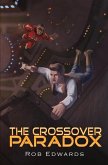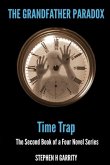The Simulation Paradox: Are We Living in a Constructed Reality? is an exploration of the simulation hypothesis, which posits that our reality may be an elaborate simulation created by advanced beings, artificial intelligence, or even future versions of humanity. The book delves into the scientific, philosophical, and ethical implications of this theory, covering topics such as quantum mechanics, virtual reality, artificial intelligence, and the possible motivations of the creators behind such a simulation. The book also examines how the idea of simulated reality has influenced popular culture, notably through works like The Matrix, and draws on ancient philosophical concepts such as Plato's Allegory of the Cave and Descartes' skepticism about the nature of reality. It discusses the role of advanced technology, including quantum computing and AI, in making simulations possible, and how modern physics and unexplained phenomena might offer clues that we are living in a simulated world. Ultimately, The Simulation Paradox challenges readers to question the nature of their existence, exploring whether consciousness, free will, and meaning are preserved if our reality is, indeed, artificial. The book raises thought-provoking questions about the search for purpose, the ethics of creating and participating in simulations, and the possibility of "waking up" from the constructed reality.
Bitte wählen Sie Ihr Anliegen aus.
Rechnungen
Retourenschein anfordern
Bestellstatus
Storno






